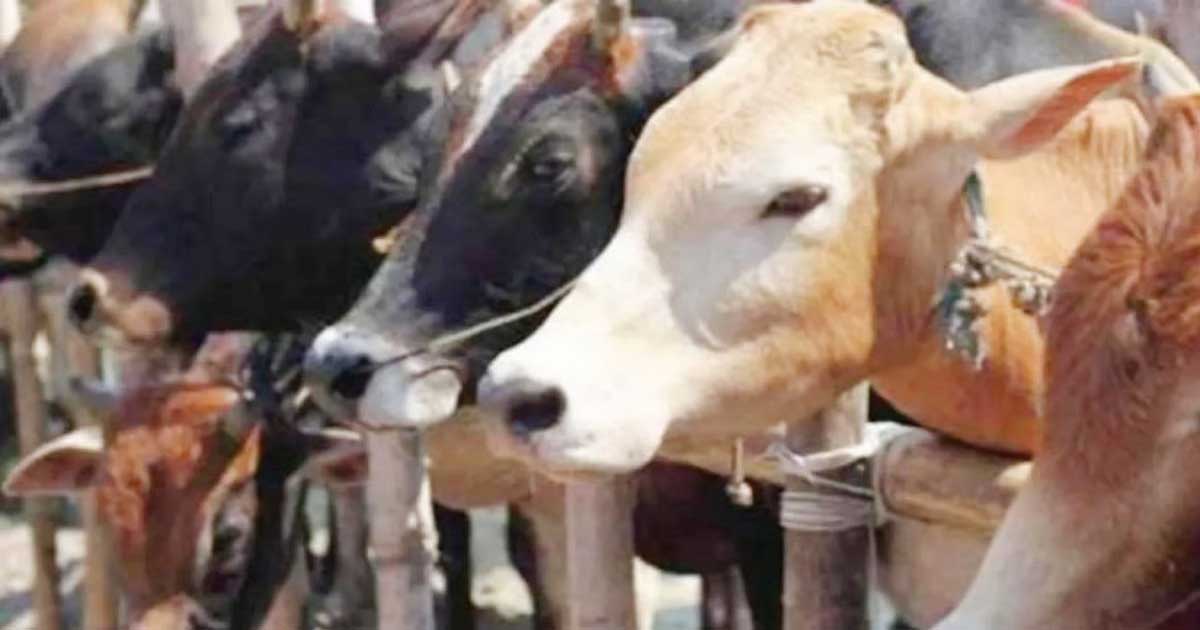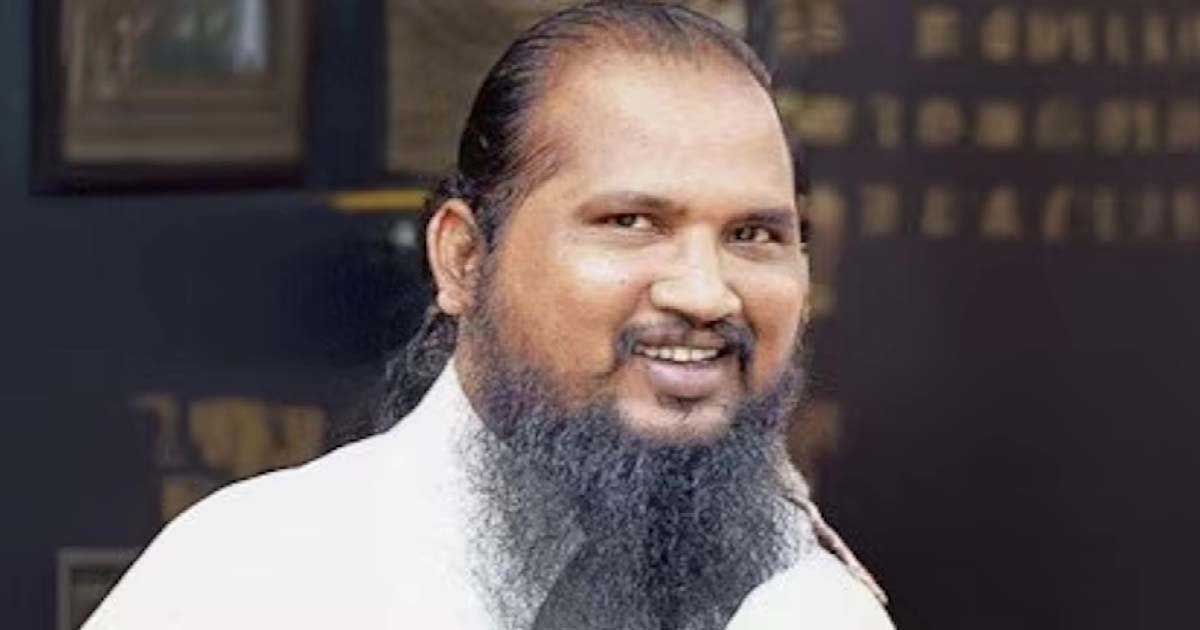Maharashtra
Working for inclusive, developed Maharashtra: Governor highlights Fadnavis govt’s initiatives

Mumbai, March 3: Maharashtra Governor C.P. Radhakrishnan in his joint address to the both Houses of state Legislature on Monday said the state was a preferred destination for Foreign Direct Investment and contributed over 14 per cent to the country’s total GDP, being one of the leading industrial states in the country.
The government is also working to build an inclusive, progressive and developed Maharashtra by bringing all communities together, he said.
He said that at the World Economic Forum held in Davos, Switzerland, in January 2025, the government signed Memorandums of Understanding worth approximately Rs 15.72 lakh crore of investment with 63 national and international companies. This will generate more than 15 lakh employment opportunities in the state. Further, the government has planned to disburse the Investment Promotion Subsidy of about Rs 5,000 crore to different industries in the state to attract investments, foster industrial growth, and generate employment opportunities.
The government, through its undertaking Maharashtra Industrial Development Corporation, has decided to allot industrial plots of approximately 3,500 acres to support and encourage industrialisation in the state. Recognising the growing demand for industrial land, 10,000 acres of land will be notified for industrial purposes.
The government will develop 10 Integrated Industrial Parks and Integrated Logistics Parks to enhance industrial growth, improve supply chain efficiency and create a world-class business ecosystem.
The government has approved the launch of the Maharashtra Technical Textiles Mission to strengthen and expand the state’s textile sector. Maharashtra has become the first state in the country to launch such a mission aligned with the Centre’s National Technical Textiles Mission, reinforcing its leadership in the textile industry.
The government will go ahead with the construction of the Nagpur-Goa Shaktipeeth Expressway. “This expressway will be completed after taking all persons into confidence. This expressway will connect major religious and pilgrimage sites along the route. This expressway will not only reduce travel time but also foster economic growth in the region. The estimated cost of the project is Rs 86,300 crore,” said the Governor. The government’s move comes against the backdrop of protests by farmers and opposition for the development of the Shaktipeeth Expressway, citing that it would adversely impact the agriculture and related activities from Kolhapur and the adjoining areas.
The government has decided to construct 7480 km long roads with cement concretisation under various schemes of the Public Works Department to enhance road durability, improve connectivity and ensure safer and more efficient transportation across the State. The toll collection will be done through FASTag only at all toll plazas across the State from April 1 this year to enhance efficiency, reduce congestion at toll plazas and promote digital transactions.
Under the Centrally Sponsored PM E-Bus Seva Yojana, in the first phase, 1290 buses have been sanctioned for 20 Municipal Corporations, and financial assistance will be provided for developing bus depots in these Municipal Corporations, he said.
The government will implement the new Maharashtra Electric Vehicle Policy starting from April 1 for the next three years. The New Electric Vehicle Policy includes providing incentives for electric vehicles and encouraging the scrapping of old vehicles. It focuses on reducing the state’s carbon footprint and making transportation more eco-friendly.
The government has signed Memorandums of Understanding with 13 agencies for electricity storage and grid stability by implementing Pumped Storage Projects through Public-Private Partnership for 38 projects. Accordingly, these projects will generate 55,970 megawatts of power, and the state is expected to receive an investment of Rs 2.95 lakh crore and create more than 90,000 employment opportunities.
Amid India’s net zero commitment by 2070, the state government has installed 3,12,000 solar pumps under the ‘Magel Tyala Saur Pump Yojana’ to help farmers access water for agriculture through solar-powered pumps in the state. Under this scheme, 10 lakh solar pumps will be provided to the farmers in five years. “Maharashtra has set a target to become the first state in the country to solarize all the agriculture feeders in the state under PM-KUSUM and Mukhyamantri Saur Krushi Vahini Yojana schemes. A total of 119 feeders, with a combined solar power capacity of 147 megawatt have been commissioned in a record time of just nine months,” said the Governor.
The government has launched a new scheme called ‘Agristack-Digital Public Infrastructure for Agriculture’ to facilitate the speedy and effective delivery of various government schemes to farmers using digital services in the agricultural sector of the state. The government has selected more than 95 lakh farmers in the state as beneficiaries under the ‘Pradhan Mantri Kisan Sanman Yojana’, and more than 87 lakh farmers have been provided Kisan Credit Card facility by banks. This initiative aims to empower farmers with financial support and access to credit facilities.
The government is implementing the ‘Lakhpati Didi’ initiative to increase women’s household income. So far, 17 lakh women have successfully raised their household income to Rs one lakh or above. The goal is to empower 26 lakh rural women to become Lakhpati Didis by the end of 2024-25, the Governor said..
“The government is implementing the National Education Policy 2020, and my government is committed to providing the required financial provisions for this purpose. The government has started the Ghar ‘Ghar Constitution Programme’ on the occasion of the completion of 75 years of the Constitution of India to raise awareness among the citizens about the Constitution of India as well as their constitutional rights and fundamental duties,” he said..
After the Centre government’s move to accord status of Classical Language to Marathi, the state government has decided to undertake following programmes — Classical Marathi Language day, Classical Marathi Language Week, honour of distinguished persons from the field of research in Classical Marathi Language, a documentary showcasing the history of Classical Marathi Language, establishment of Centre of Excellence and Translation Academy.
The Governor said the state government is committed to resolving the Maharashtra-Karnataka border dispute and has appointed expert advocates to represent Maharashtra before the Supreme Court to resolve this issue.
The government is implementing educational, healthcare and various other welfare schemes for the Marathi-speaking people in the border areas, the L-G said.
Maharashtra
Mumbai: Jains Donate ₹1.38 Crore To 141 Flood-Hit Gaushalas Across Maharashtra

In a remarkable act of compassion, the Jain community in Mumbai distributed ₹1.38 crore to 141 gaushalas across Maharashtra that were affected by recent floods.
According to Paresh Shah, a member of the Maharashtra Goseva Aayog, the donations will help the gaushalas purchase fodder and essential supplies for their cattle. Each gaushala received ₹50,000 as part of the relief distribution.
The contribution was made during the ‘Jivdaya Mahotsav’, held on Sunday at a Jain temple in Chinchpokli. Of the total amount, the Sheth Damji Lakshmichand Charitable Trust contributed ₹63 lakh. The community also launched a ₹27-lakh animal ambulance to aid animal welfare initiatives in Mumbai.
The event was graced by Shaina N C, national spokesperson of the Shiv Sena, as the chief guest, and Girishbhai Shah from the Animal Welfare Board of India.
Notable donors included the Deepakbhai Bheda family and the Diyodar Jain Sangh, each contributing ₹11 lakh.
Organisers said the initiative reflects the Jain community’s commitment to ‘Jivdaya’ (compassion for all living beings) and aims to support animal shelters struggling after the floods.
Maharashtra
Mumbai: Harassment of ordinary Muslims in the name of Bangladeshis should stop, Abu Asim makes serious allegations against the government over Home Minister Amit Shah’s statement

abu azmi
Mumbai: Maharashtra Samajwadi Party leader Worker Assembly Abu Asim Azmi criticized the statement of Home Minister Amit Shah and said that it is the responsibility of the Home Minister and the Central Government to take action against Bangladeshi and Pakistani infiltrators. The population of Muslims in India has increased due to Bangladeshis. This is completely wrong. The residents of West Bengal and ordinary Muslims are being targeted under the guise of Bangladeshi and Pakistanis. He said that the government is yours in many states and at the center, so how do Bangladeshi infiltrators enter from the border? What action has the government taken against those who forge their documents so far? He said that targeting Muslims under the guise of Bangladeshi should be stopped, just as Karat Soumya is trying to fake the certificates and documents of every Muslim and is targeting Muslims. He said that the government should pay attention to how Bangladeshi infiltrators infiltrate from the Indian border. This is not the job of Congress, SP or other parties. It is the job of the government to take action against Bangladeshi and Pakistanis and to bring them to justice. But Muslims should not be harassed or disturbed. He said that action is being taken against those officers who are preparing documents for Bangladeshis.
Maharashtra
Mumbai underworld don DK Rao arrested for extortion on Saturday

Mumbai: Mumbai Crime Branch has claimed to have arrested gangster DK Rao, a member of the Mumbai underworld Don Chota Rajan gang, on charges of extortion. Along with this, the police have also arrested two of his associates Anil Singh and Menit Bhuta. The gangster, along with Menit Bhuta, had collected Rs 1.25 crore from an investor and threatened him with dire consequences, after which the complainant lodged a complaint with the police. The police took action and arrested DK Rao and obtained his remand. The Mumbai Crime Branch had also arrested DK Rao on charges of threatening a hotel owner and demanding Rs 2.5 crore. Along with this, his associates were also arrested.
A hotel owner in the suburban Sakinaka area was threatened and forced occupation of a hotel is also an allegation. A case was registered in this matter in which DK Rao is on bail. Last night, DK Rao appeared in the sessions court in connection with the hearing of his old case. He had gone for an appointment and the police arrested him. In this case, the police are interrogating him and his associates. It is said that DK Rao still has a hold and terror in the Dharavi area and is involved in other illegal activities including weekly summons. The Crime Branch has now tightened its grip on this, which is causing terror in the underworld. In this case, the Crime Branch will also interrogate DK Rao’s associates. Along with this, the Crime Branch will also interrogate the victims who were victims of DK Rao’s harassment.
-

 Crime3 years ago
Crime3 years agoClass 10 student jumps to death in Jaipur
-

 Maharashtra1 year ago
Maharashtra1 year agoMumbai Local Train Update: Central Railway’s New Timetable Comes Into Effect; Check Full List Of Revised Timings & Stations
-

 Maharashtra12 months ago
Maharashtra12 months agoMumbai To Go Toll-Free Tonight! Maharashtra Govt Announces Complete Toll Waiver For Light Motor Vehicles At All 5 Entry Points Of City
-

 Maharashtra1 year ago
Maharashtra1 year agoFalse photo of Imtiaz Jaleel’s rally, exposing the fooling conspiracy
-

 National News1 year ago
National News1 year agoMinistry of Railways rolls out Special Drive 4.0 with focus on digitisation, cleanliness, inclusiveness and grievance redressal
-

 Maharashtra11 months ago
Maharashtra11 months agoMaharashtra Elections 2024: Mumbai Metro & BEST Services Extended Till Midnight On Voting Day
-

 National News1 year ago
National News1 year agoJ&K: 4 Jawans Killed, 28 Injured After Bus Carrying BSF Personnel For Poll Duty Falls Into Gorge In Budgam; Terrifying Visuals Surface
-

 Crime12 months ago
Crime12 months agoBaba Siddique Murder: Mumbai Police Unable To Get Lawrence Bishnoi Custody Due To Home Ministry Order, Says Report












